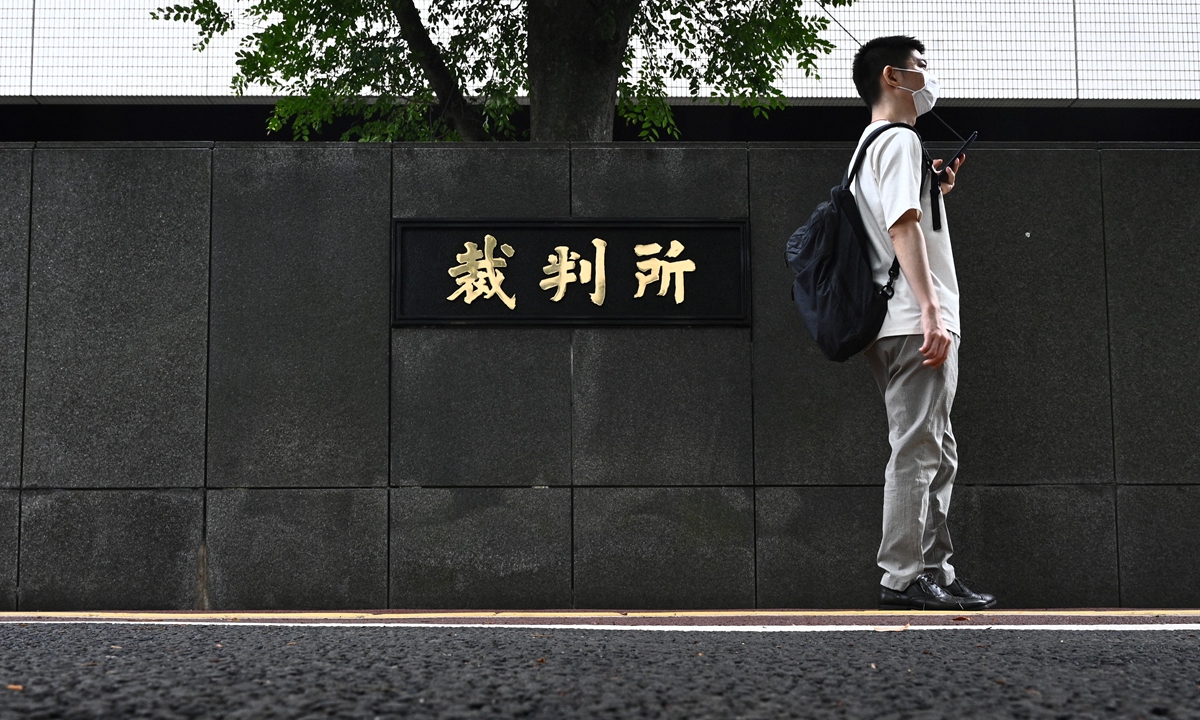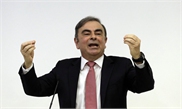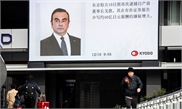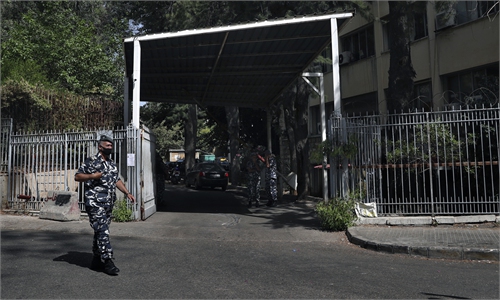US father-son duo admit helping Ghosn flee Japan

A man walks past the main gate of the Tokyo district court where former US special forces member Michael Taylor and his son Peter, who allegedly staged the operation to help fly former Nissan chief Carlos Ghosn out of Japan in 2019, arrived at the court in Tokyo on Monday. Photo: AFP
An American father-son duo accused of orchestrating former Nissan chief Carlos Ghosn's audacious escape from Japan admitted their role on Monday as they made their first appearance before a Tokyo court.
Former special forces operative Michael Taylor, 60, and his 28-year-old son Peter were extradited by US authorities over claims they smuggled Ghosn out of Japan in a music equipment case as he awaited trial.
At the Tokyo district court on Monday, the pair said they did not contest the facts laid out by prosecutors in an indictment, effectively conceding their role in the saga.
The pair face up to three years in prison if convicted of helping Ghosn, who is currently an international fugitive living in Lebanon, which has no extradition treaty with Japan.
Ghosn was out on bail while awaiting trial on four counts of financial misconduct, which he denies, when he managed to slip past authorities onto a private jet, transit in Turkey and land in Lebanon.
The escape was hugely embarrassing for Japanese authorities, who termed it "one of the most brazen and well-orchestrated escape acts in recent history."
The Taylors, along with a Lebanese national still at large, are suspected of orchestrating the December 2019 escape - including putting Ghosn inside an audio equipment case to get him onto the private jet.
The pair fought their extradition to Tokyo, claiming they could face torture-like conditions, and have not commented on their case since arriving in early March.
Tokyo's Deputy Chief Prosecutor Hiroshi Yamamoto has declined to comment on their arraignment, but local media said both men have admitted wrongdoing during questioning.
Public broadcaster NHK has said Peter received 144 million yen ($1.3 million) from the Ghosns for their help. The Asahi Shimbun daily said the pair spent most of the money on preparations for the escape, including the costs of chartering a private jet, claiming that they were not paid for their help.



